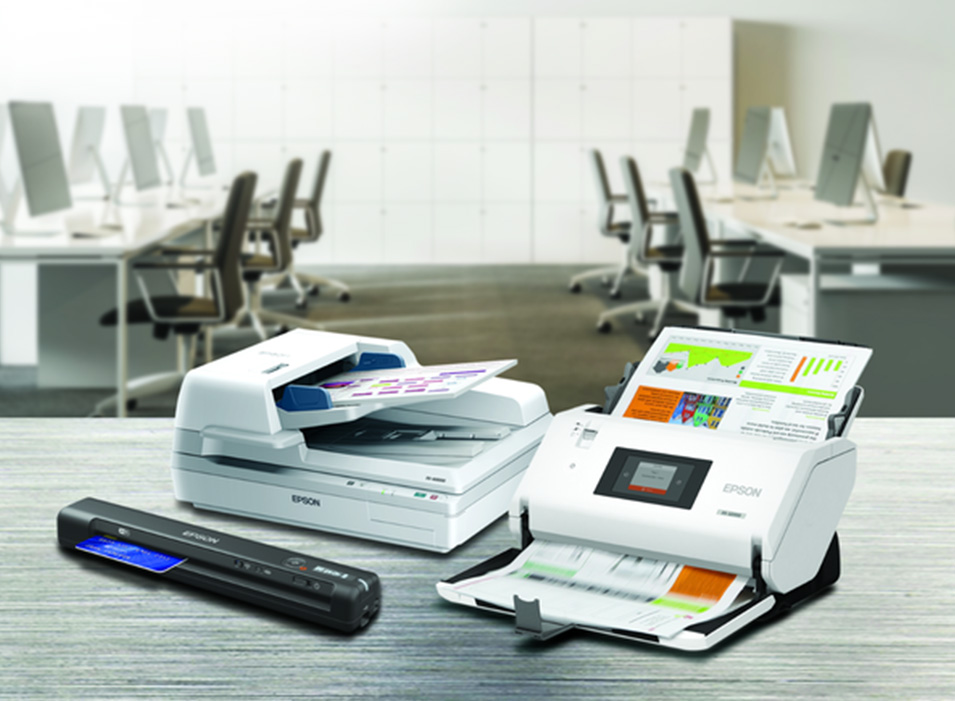Records For Life: Digital Archiving to Transform Business Productivity

Making the switch from traditional to digital archiving can be the catalyst of revolutionary growth in productivity for governments and businesses. Digital archiving is more than just the conversion of documents into digital form – it signifies the streamlining and simplification of workflow, the transformation into smart archives and the growth of increased efficiency and productivity in the workplace with the help of scanners.
Traditionally, when it comes to archiving records, physical documents are stored in large archive storage rooms which take up tremendous space, filled with countless folders and files, some or most of which could be regularly mislabelled or misplaced – resulting in more time spent sifting through large amounts of paperwork for the correct document rather than focusing on tasks that will benefit the business.
Adopting smart archives eliminates numerous obstacles that hinder productivity and organisational growth within the workforce. For many organisations, a single document is expected to have a lifespan that isn’t hindered. However, traditional archiving relies on human input to correctly file and store these documents, and more more often than not, human error can cut short the lifespan of these documents due to damages and misplacement. In certain businesses, this human error is tolerable, however in certain industries such as healthcare, for example – human error or inefficiency has dire consequences.
Transforming Business Productivity
All industries are seeing immense transformation due to digitisation, and the healthcare industry is one that is perhaps delivering the greatest impact due to it [1]. The increase of digital archiving has allowed for the healthcare industry to provide innovative care to their patients. From streamlined and efficient patient care, the uptake of telehealth or telemedicine where patients can see a doctor via video call, to hospitals being able to share cases with one another. In healthcare, digital archiving is improving quality of life by delivering true impact to patients, ensuring that all records are up-to-date, resulting in real life difference. Although scanning has specific use cases in healthcare, it shares similarities when we look at businesses and the impact digital archiving delivers.
Visit most offices and there will be a dedicated storage room for documents where stacks of papers are filed, and some of which have documented confidential information. The tasks of sorting through traditional archives are a tedious and time-consuming task and is often a labour-intensive process that requires individuals to set aside hours and hours to complete – taking time away that could be used focusing on more value added tasks.
With the innovation found in today’s scanners, organisations can reduce their storage space by housing a scanner in the corner of the office, made possible due to the compact and innovative design of today’s Epson scanners, the No. 1 market share in document scanners in the Southeast Asia region [2]. Within the workspace, the largest draw for any digitising traditional archives is how it alleviates the pressure on the back-end and front-end – providing a more efficient way of operating and ensuring that the businesses have a consolidated archive that is easy to access and extract information. Whilst many industries are digitally transforming, paperwork still plays a vital role in day-to-day business, whether it’s legal and financial documentation or healthcare, customer, and government records and receipts. Digitally archiving or embedding digital documentation has also opened up a new avenue for businesses to retain and obtain new customers.
Today, customers are seeking convenience – a way to address administrative issues on the go. With the ability to scan documents from a mobile phone, signing documents on applications like DocuSign and the infinite storage potential of the cloud – businesses that leverage digital documentation are not restricted by the traditional brick and mortar method of traditional archiving. Scanning to the Cloud not only makes archiving and retrieving these documents faster and more convenient, but also lowers environmental impact – reducing mailing and the need for additional paper and printing.
As technology continues its evolution to place customers at the centre of businesses – there is an immense need for businesses to have all their customer’s information consolidated. Unlike traditional archiving where documents are dispersed across various different storage, digital archives and the technology available allows for businesses to have a single source of information – information that is accurate, reliable and immediately accessible. With the consolidation, people from the same organisation are able to access the same information, which in return will allow them to provide them with the same level of personal service to their customers, ensuring that the customer value is consistent through the entire journey.
Sustainability-Forward Scanning
Perhaps one of the most overlooked benefits of scanning is that it is sustainable. In organisations where documents are confidential in nature, by digitally sharing these documents, organisations can reduce the need to mail and courier documents – meaning that there’s a reduced risk of losing confidential information, and more importantly, a huge reduction in their carbon footprint.
Ultimately, digitally archiving documents is an impactful way to increase productivity within an organisation that has been traditional in their ways, while driving sustainable growth.
[1] Mckinsey “How COVID-19 has pushed companies over the technology tipping point—and transformed business forever”
[2] 2021H2 IDC Document Imaging Scanner Historical Release – Epson_ASEAN and India
Posts You May Like
Get Social With Us





0 Comments